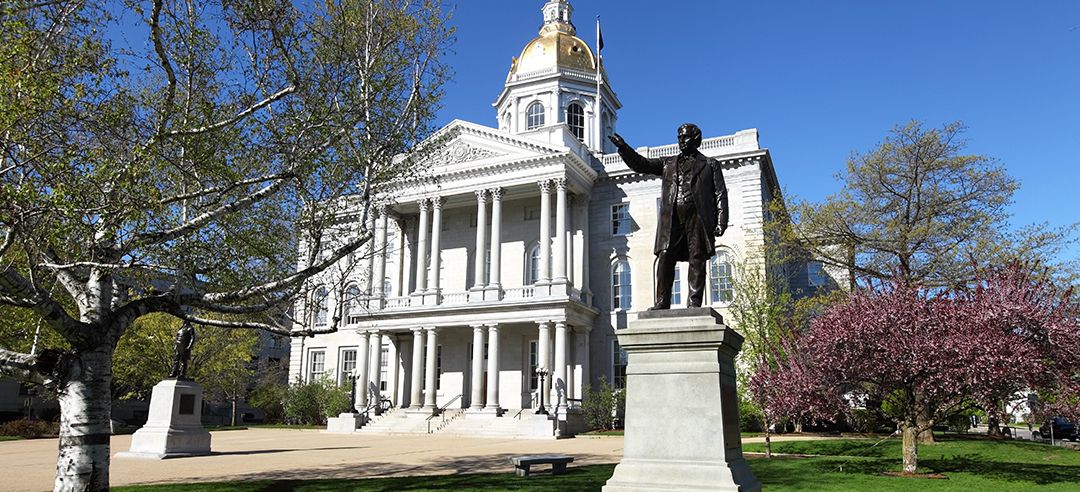Good standard release forms make good neighbors
By BOB QUINN
Chief Executive Officer
Current law requires private wells to be placed at least 75 feet from a septic system. But what happens if a landowner needs to place their septic system closer than that 75-foot setback from a neighbor’s private well?
The issue led to a NH Supreme Court decision a number of years ago in which the court ruled the protected radii cannot extend into a neighboring property, as some owners were placing wells on the property line in order to prevent neighbors from constructing near their properties.
RSA 485-A:30-b allows abutting lot owners to overlap their respective well radii, but they need to record a “standard release” form at the registry of deeds, indicating the overlapping setbacks.
House Bill 247 is intended to simplify the process and eliminate the need for a document to be recorded in the deed. The well water contractor would be required to submit a “setback reduction form” with NHDES indicating an overlap.
NHAR supports the legislation. It has passed out of the House of Representatives and will be heard in the Senate this spring.
The woods are lovely, dark and biodiverse
The intent behind Senate Bill 164 is to acknowledge that invasive species and warming temperatures pose a threat to the biodiversity of New Hampshire, and to provide various state agencies with additional authority to consider all species, including, “plants, bacteria, animals, and humans in a particular region, habitat, or ecosystem, that work together to maintain balance and support life.”
Farmers, foresters, and animal rights groups testified that they have concerns with the language and how the bill might be implemented.
The bill, as originally written, would have encompassed certain activities and permits granted by the Department of Environmental Services, Department of Transportation, Fish & Game, the Land and Community Heritage Investment Authority (LCHIP) as well as municipal governments.
Ultimately, the Senate felt the language was too broad and amended the bill to only allow LCHIP to consider “biodiversity” when contemplating eligible resources for protecting habitat. The amended bill will be heard in the House later this spring.
The ‘private’ road less travelled
Senate Bill 63 would allow municipalities to adopt a tax credit for residents who live on private roads.
Proponents of the bill argued that property owners are responsible for the upkeep of private roads, and due to the lower construction standards of these roads, they tend to fail more quickly. The task of repairing the roads falls upon the people who live along those roads, and are not supported by the municipalities. A tax credit would reduce their property taxes in order to fund the road repairs.
The NH Municipal Association voiced concerns, stating that currently property assessments are based on the market value of the home, and assessors do take into account whether or not the property is in a private development. And state statute clearly indicates in RSA 231:59 that “municipalities cannot spend public funds to maintain private roads or driveways.”
The Senate Municipal Committee has “re-reffered’ the bill, meaning they will delay any final action until next year.
Quote of the week
"We have heard loud and clear from our area employers about the difficulty to find employees or housing for them. We need to tackle this housing issue, and it’s going to take a lot of variety of housing types and price points. No one town can or should have to shoulder the entire responsibility.”
Adam Ricker, Town Planner, Enfield (reprinted from the Valley News, March 5, 2023)
Bonus factoid
New Hampshire’s own Robert Frost was born in March 1874. He taught at the Normal School (now Plymouth State). He lived at various times in Derry, Franconia, and Hanover (Dartmouth).
NHAR’s legislative chart can be found here.
For more information, contact New Hampshire Realtors CEO Bob Quinn: bob@nhar.com.

